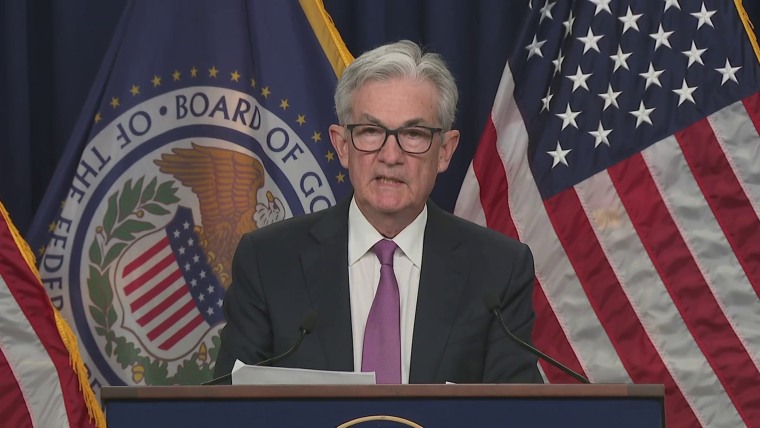By Tim Smart
(UNWR) – The U.S. economy slumped 0.9% in the second quarter, the Bureau of Economic Analysis reported on Thursday, in one of the most widely anticipated economic releases of the year.
“The decrease in real GDP (gross domestic product) reflected decreases in private inventory investment, residential fixed investment, federal government spending, state and local government spending, and nonresidential fixed investment that were partly offset by increases in exports and personal consumption expenditures (PCE). Imports, which are a subtraction in the calculation of GDP, increased,” the report said.
The decline makes it two quarters in a row of negative growth, following a 1.6% drop in the first quarter, and the news will lead to pronouncements that the U.S. has now slipped into a recession. However, while two quarters of contraction in economic output is often used as a measure of a recession, the official determination will not be made for some time and will take into account a host of other economic data.
That won’t matter to the general public or to politicians who are eager to tag President Joe Biden with having presided over the highest inflation since the 1980s and now a recession.
White House officials spent a good part of the week downplaying the GDP report, with Biden dismissing the idea that the economy was already in recession. On Thursday, Federal Reserve Chairman Jerome Powell said, “I do not think the U.S. is currently in a recession.”
Powell cited the continued strength of the labor market and mentioned that “aggregate demand appears to remain strong.”
While it is not as hot as it once was, the labor market still averaged 375,000 new jobs a month over the past quarter.
“The current labor market does not reflect recessionary patterns,” said Rucha Vankudre, senior economist at Lightcast, a data analytics firm focused on the job market.
But it is the policies of the Fed that are seen as pushing the economy into a recession, through an aggressive tightening of monetary policy aimed at curbing inflation. The central bank also is letting its large balance sheet run down. Economists generally believe the odds of a recession within the next 12 months are better than even money.
“The Fed delivered today what had been broadly expected, while reiterating their commitment to doing whatever is needed to bring inflation back under control,” said Jim Baird, chief investment officer at Plante Moran Financial Advisors.
“Can policymakers do so without also tipping the economy into recession?” Baird added, following the Fed’s announcement of a 75 basis point interest rate hike on Wednesday. “Some have suggested that ship has already sailed and that a recession is already underway. The ambiguity present in a range of indicators makes that a difficult call.”
To some degree, it is a matter of semantics. Consumers have turned sour, the housing market is cooling rapidly, and even the labor market has softened in recent weeks. Inflation has been the primary concern for most Americans, although the recent drop in gasoline prices and some other goods gives some hope on that front.
“Our qualitative assessment of recession risk out 12 months is 45% (within a wider range of 40%-50%), and we see risks increasing as we head into 2023,” said Beth Ann Bovino, managing director and chief economist for the U.S. and Canada at S&P Global Ratings.
Separately, the number of Americans filing first-time claims for unemployment benefits fell slightly last week to 256,000 from the revised 261,000 previously.
The four-week moving average was 249,250, an increase of 6,250 from the prior period.
“Through July, we’ve seen very slight declines in workforce activity in 4 of the last 5 months, leading to a slowing in new job creation,” said Dave Gilbertson, vice president at human resources company UKG.
“UKG data is suggesting this trend of gradually declining new job creation continued in July, which we expect will be validated in next week’s jobs report,” Gilbertson added. “With the notable exception of health care jobs, most industries are on a path to have a ‘soft landing’ in the labor market.”



